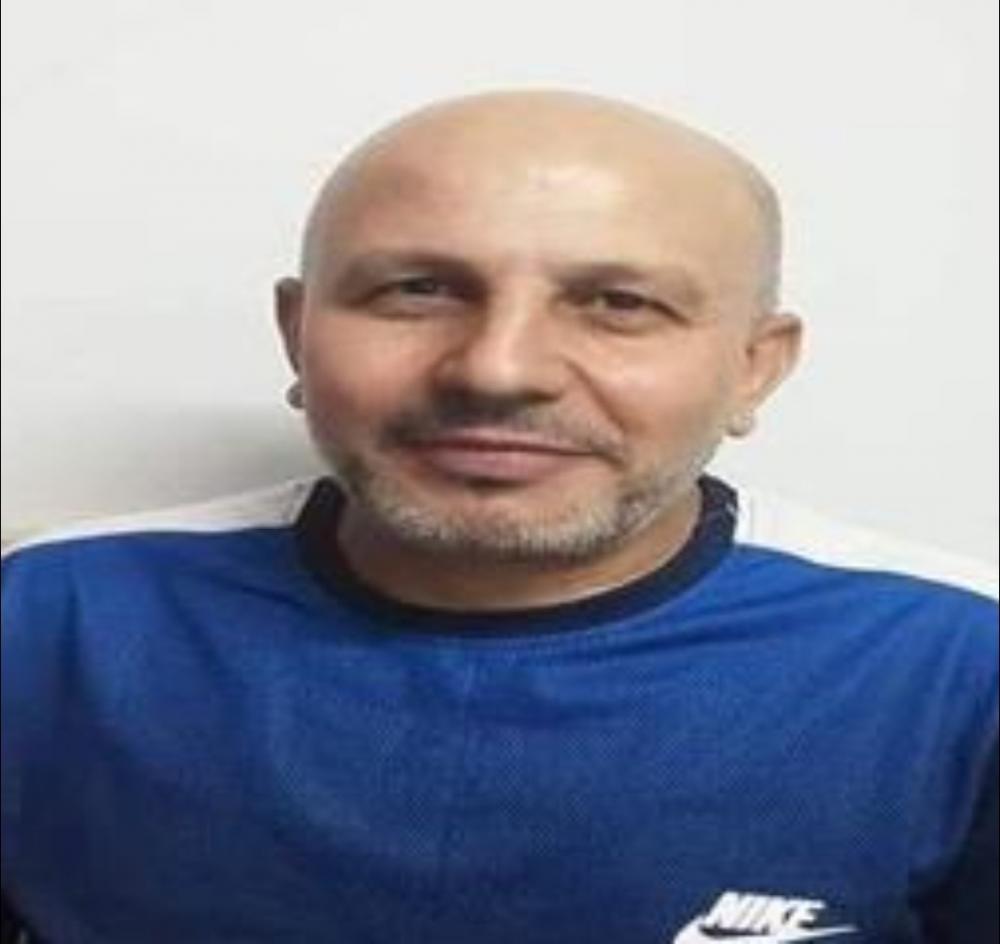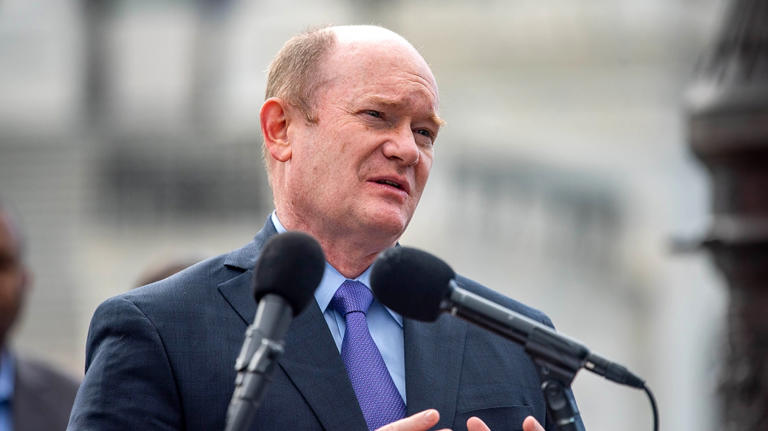
JERUSALEM (AP) — A high-profile Palestinian prisoner died in Israeli custody on Tuesday after a nearly three-month hunger strike, Israel’s prison service announced, at a time of already soaring tensions between Israel and the Palestinians.
Khader Adnan, a leader in the Palestinian Islamic Jihad militant group, is the first Palestinian prisoner to die since Palestinian inmates began staging protracted hunger strikes about a decade ago. His death raises the potential for renewed violence between Israel and Palestinian militant groups as violence surges in the West Bank.
Shortly after his death was announced, Palestinian militants in the Gaza Strip fired a volley of rockets into southern Israel. Palestinians called for a general strike in the West Bank and the Gaza Strip, and protests were expected later in the day.
Palestinian prisoners have for years gone on lengthy hunger strikes to protest their detentions and to seek concessions from Israel. The tactic has become a last recourse for resistance against what Palestinians see as unjust incarcerations. The prisoners often become dangerously ill by refusing food but deaths are rare.
Dawood Shahab, an Islamic Jihad spokesman, called Adnan's death “a full-fledged crime, for which the Israeli occupation bears full and direct responsibility.”
Palestinian prisoners are seen as national heroes and any perceived threat to them while in Israeli detention can touch off tensions or violence. Israel has often conceded to demands to release prisoners or shorten their sentences after they staged life-threatening hunger strikes. Israel sees Adnan and other Palestinian prisoners as security threats accused of involvement in deadly attacks or plots.
Adnan, 45, began his strike shortly after being arrested on Feb. 5.
Over the years, he has been repeatedly arrested by Israel and became a symbol for steadfastness in the face of Israel's occupation when he began staging lengthy hunger strikes just over a decade ago.
Among his six hunger strikes was a 66-day protest in 2012, and two other strikes in 2015 and 2018 that lasted 56 and 58 days respectively. Israel released Adnan after the 2015 strike.
According to the Palestinian Prisoners Club, which represents former and current prisoners, Adnan was arrested 12 times and spent about eight years in Israeli prisons, most of that time under so-called administrative detention, in which suspects are held indefinitely without charge or trial.
Related video: Hopes for a Palestinian state further recede under Israel's new government (cbc.ca) View on Watch
His death comes as Israel is led by its most right-wing government ever, and as prisons and Palestinian prisoners are overseen by National Security Minister Itamar Ben-Gvir, an ultranationalist who has tightened restrictions on Palestinian prisoners, including shortening their shower time and closing prison bakeries.
Israel is currently holding over 1,000 Palestinian detainees without charge or trial, the highest number since 2003, according to the Israeli human rights group HaMoked.
That figure has grown in the past year as Israel has carried out almost nightly arrest raids in the occupied West Bank in the wake of a string of deadly Palestinian attacks in Israel in early 2022.
Israel says the controversial tactic helps authorities thwart attacks and hold dangerous militants without divulging incriminating material for security reasons. Palestinians and rights groups say the system is widely abused and denies due process, with the secret nature of the evidence making it impossible for administrative detainees or their lawyers to mount a defense.
Several Palestinians have gone on prolonged hunger strike in recent years to protest being held in administrative detention. In most cases, Israel has eventually released them after their health significantly deteriorated. Many have suffered irreparable neurological damage. Four prisoners on hunger strike died in the 1970s and 1980s as they were being force fed by Israeli authorities. Force-feeding was outlawed until 2015 when an Israeli law allowed a judge to sanction the practice in some circumstances. It’s unclear if the law has ever been invoked.
Adnan's lawyer and an Israeli rights group said Adnan's condition had been deteriorating and they had asked Israeli authorities to hospitalize him, where his medical condition could best be monitored. Physicians for Human Rights Israel, the rights group said that a doctor who had visited him several days ago had written a medical opinion outlining the immediate risk to his life, but that those entreaties were ignored.
“Khader Adnan chose a hunger strike as a last resort, a non-violent means of protest against the oppression of himself and his people,” the group said in a statement.
Israel’s prison service said Adnan had been charged this time with “involvement in terrorist activities." It said that Adnan was in a prison medical facility, but had refused medical treatment “until the last moment” while legal proceedings moved forward. It said he was found unconscious in his cell early Tuesday and transferred to a hospital where he was pronounced dead.
Palestinian groups called for a general strike in the Gaza Strip, Jerusalem and in cities across the West Bank on Tuesday, with schools and business closing for what organizers called a day of “general mourning."
The Israeli military said the missiles fired from the Hamas-controlled Gaza Strip fell in open territory, causing no damage. The Islamic Jihad militant group said in a statement that “our fight continues and will not stop.”
Israel fought an 11-day war with Palestinian militants in Gaza, including Islamic Jihad, in May 2021.
Meanwhile in the West Bank, where Israeli-Palestinian violence has surged over the past year, Israeli officials said a suspected Palestinian shooting attack lightly wounded an Israeli man.
Israel and Palestinians in the West Bank have been locked in a bout of fighting for the past year. About 250 Palestinians have been killed by Israeli fire and 49 people have been killed in Palestinian attacks on Israelis.
Ilan Ben Zion, The Associated Press
Palestinian Detainee Khader Adnan Remains on Hunger Strike For 84th Day

The Palestinian detainee Khader Adnan entered Sunday, 30 April 2023, his 84th day of open hunger strike in Israeli jails in protest against his illegal administrative detention.
The health of Palestinian hunger striker Adnan, 44, deteriorated seriously as he continues his protest for the 84th day in a row against his administrative detention in an Israeli prison, the Palestinian Prisoners’ Club stated.
Adnan hailed from the Palestinian village of Arraba near Jenin. He launched his hunger strike immediately after he was arrested by the Israeli occupation forces on 5 February.
The father of nine — his youngest is just 18 months old — has been detained by the Israeli occupation authorities twelve times and has spent eight years in Israeli jails, mostly in administrative detention.
The Israeli occupation has escalated its administrative detention policy against Palestinians as the number of administrative detainees currently exceeded 760, including minors, women, and the elderly, according to the Palestinian Prisoners Commission.
The Commission added that 80 percent of the administrative detainees are former prisoners who spent years in the prisons most were administrative detentions.
Israel’s illegal policy of administrative detention is a pre-emptive measure that allows the detention of Palestinians without charge or trial for lengthy periods of time based on disclosed allegations that even a detainee’s lawyer is barred from viewing.
Palestinian detainees have constantly resorted to hunger strikes as a method to oppose their administrative detention, demanding an end to this illegal policy that violates international law and Human rights accords.
Palestinian Detainees Commission Holds Israeli Occupation Responsible for Detainee’s Life

The Palestinian Commission of Detainees and Ex-Detainees held Monday, May 1, 2023, the Israeli occupation fully responsible for the life of the Palestinian detainee Qasim Musallam who suffers from Israeli policy of medical negligence as other sick prisoners.
The commission said, “The detainee Musallam, who is in the Israeli Gilboa prison, suffers from nervous spasms in his feet, and the prison administration still refuses to provide him medical treatment.”
“He suffers from high blood pressure, high diabetes, and permanent pains in the spine. He got all these diseases while he was in – Israeli – prison cells,” It added.
It called for the international community to act and end the Israeli occupation and its escalating crimes against the Palestinian detainees and the Palestinian people which are against all international norms and agreements.
It’s reported that the detainee Qasim Musallam, from Nablus, has been detained by Israeli troops on November 15, 2023, and he is sentenced to 30 years in prison.






















